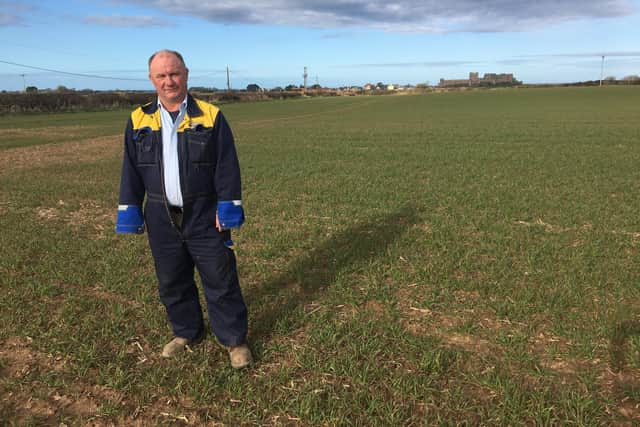Northumberland farmer wants the industry to stand on its own two feet
and live on Freeview channel 276
The Chathill farmer believes it is important for the industry to be self-sufficient and not rely on support payments.
Pip, who has joined the Agriculture and Horticulture Development Board (AHDB) Monitor Farm network, said: “I think farmers could be much better off without subsidies. Self-sufficiency is something I’ve been working towards for 35 years.”
Advertisement
Hide AdAdvertisement
Hide AdPip runs a mixed farm of just over 800 hectares, including 480 hectares of arable cropping. Along with wheat and barley, Pip’s rotation includes spelt, an ancient grain used in the manufacture of gluten-free bread. He is now in his third year of growing the crop.


He is a big believer in using integrated farm management, where different aspects of the business complement each other. The farm features a suckler herd, half of which are pedigree Aberdeen Angus.
Pip includes the herd in his crop rotation, alongside break crops such as oilseed rape. He is able to use the manure from the livestock as organic fertiliser.
As well as arable cropping and livestock, the farm has other enterprises including contracting work and an on-farm straw pelleting plant. Pip’s business goal is to combine business flexibility with efficiency. The multiple revenue streams means the business is diverse and able to cope with the uncertainty that is part of farming life.
Advertisement
Hide AdAdvertisement
Hide AdAs a Monitor Farm host Pip will host discussion groups of farmers in his area to share thoughts and ideas. They will hear from experts on matters such as agronomy, cultivation techniques, machinery and much more. One topic Pip is keen to explore is the carbon cycle, as he works to make his business carbon neutral.
Supporting Pip in his new role will be Rose Riby, AHDB’s knowledge exchange manager for cereals and oilseeds in the North East of England.
She said: “It’s great to have Pip on-board. He’s a champion of integrated farm systems and using more traditional approaches, which is a direction many in farming are increasingly considering.”
Monitor Farms bring together groups of like-minded farmers who wish to improve their businesses by sharing performance information and best practice.